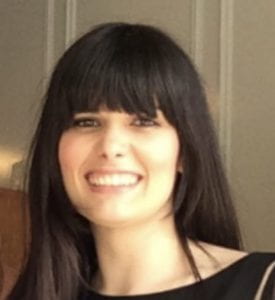 Context: Covid-19/Other
Context: Covid-19/Other
As the quarantine period started, Freedom and OTR worked to take all services online as quickly as possible. Freedom met with some of our members to discuss the ways in which an online service would most meet their needs and used this to inform our delivery. We’re still offering an online session for both groups (13-18/18-25) each week, but using different platforms based on the group feedback. We have worked to ensure that we have regular connection to our members through a variety of methods, including social media, and we have been able to offer 121 sessions online with an LGBTQ+ specific counsellor and with Wellbeing Practitioners, who offer solution focused support around mental health such as anxiety, low mood and depression. We have several members who are shielding due to other health considerations.
Our young people are socially active and have been affected by recent events including the Black Lives Matter movement, trans equality in the UK, alongside recent events surrounding trans communities in Hungary and the US, and this is being taken into consideration when working alongside our members. Ensuring that our project, and the work involving the City Fellows, is intersectional and reflects the rich diversity of Bristol and of the LGBTQ+ community remains a priority.
Freedom have expanded our remit over the last few months in other ways, working with SARI to offer consultation around LGBTQ+ phobic hate crimes. Moving forward, this will include an element of health promotion around reporting hate crime.
What this means for you
Restrictions relating to Covid-19 have had a significant affect on LGBTQ+ young people and has affected the intended impact of the City Fellows project. Having come into this project intending to work with young people to establish and create a project that directly relates to their needs, this has been delayed. I would like to work face to face with young people where possible, recognising that hostile home environments can mean that our members are unable to engage with LGBTQ+ specific services in the same way remotely. I am also conscious that the needs and desires of LGBTQ+ young people may change in the coming months, and local activism is likely to become important.
Challenges that this has presented
A big part of our work is about creating community, and being unable to offer face to face services has changed the way that this operates. As this City Fellows project is slightly different from that of other fellows, in that there isn’t a pre-planned proposal or an existing project to work on, the circumstances surrounding Covid-19 have affected my ability to create something as quickly as I might have liked. However, changing social circumstances, specifically relating to LGBTQ+ people, mean that this project is likely to have greater potential moving forward, as we work alongside the University and the City Office to centre their experiences, as there have been smaller pieces of work locally that have benefitted from the input of LGBTQ+ young people, including the Economic Recovery Webinars organised by the City Office .
What is more/less important now
Freedom are focusing this year on celebrations for our 25th birthday, which took place on July 4th, making us (we think!) the longest running LGBTQ+ project for young people in the UK. Celebrations for this feel particularly important in light of cancelled LGBTQ+ celebrations worldwide. We are focused on making international connections to show solidarity with LGBTQ+ communities globally, including a potential collaboration with China Pride.
Re-establishing community connections will be important moving forward, and a recognition of the contributions of LGBTQ+ people feels like it could become particularly pertinent. Conversations have taken place locally around some intergenerational work involving older and younger LGBTQ+ people, and the importance of documenting history feels more important than ever in light of recent events.
What are your priorities moving forward
I want to ensure that experiences of quarantine and Covid-19 for LGBTQ+ people are collected and recognised. There are some conversations that are taking place around inclusive SRE education, and offering support for teaching staff in the south west to ensure that HIV awareness is included in PSHE lessons. We are also looking ahead to LGBTQ+ history month in February 2021. As we come out of lockdown and the ‘new normal’ becomes clearer, I will work with new and existing members to establish what their priorities are in the city and how we can ensure that their voices are heard.

